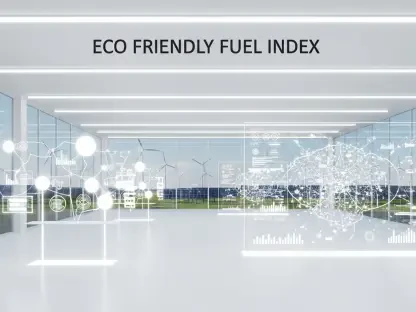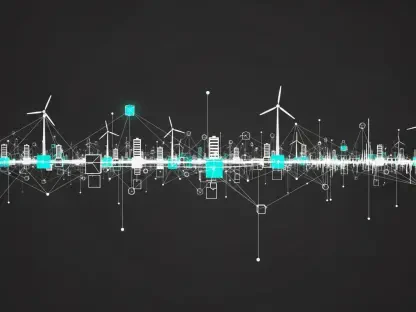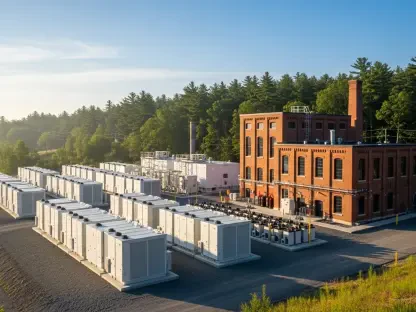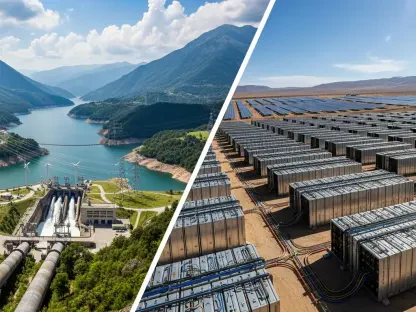Puerto Rico is in the midst of an energy transformation that is rapidly redefining its electric grid landscape. Amid challenges of high-cost electricity and frequent instability, the island is embracing a distributed energy model, primarily through the adoption of rooftop solar systems. Surprisingly, 4,000 homes have been connecting to the grid monthly, supported by smart-enabled solar and battery systems. This shift not only provides financial relief to Puerto Rican families but also strengthens grid resilience, challenging the status quo of electricity distribution on the island.
The Issue of Net Metering and Legal Challenges
Why Net Metering Matters
Net metering, an essential element in the solar energy equation, offers a system where solar households receive credits for excess energy supplied to the grid. This setup is key for making solar energy affordable and accessible. Currently, 10% of Puerto Rican homes use net metering, allowing them to offset high energy costs effectively. However, the Financial Oversight and Management Board for Puerto Rico (FOMB) is threatening its extension through legal means, aiming to halt the practice set to last until 2030. This legal challenge diverts focus from necessary grid improvements, jeopardizing progress toward the island’s sustainable energy goals, and heightening vulnerability within the existing grid setup.
Evidence of Challenges
Evidence shows how net metering plays a critical role in maintaining solar affordability. Without credits for excess energy, homeowners face reduced incentives to switch to solar, hampering widespread adoption. Detailed findings indicate that legal proceedings by FOMB risk escalating costs for households and could undermine recent advances in energy policy. Data highlights the adverse impact such legal disputes have on achieving energy independence and security. Additionally, the threat to net metering could lead to greater grid instability, undermining efforts to create a robust energy network.
Community-driven Resilience and a National Trend
Smart Inverters and Grid Stability
Puerto Rico’s energy transition illustrates a community-driven attempt to establish resilience and equity in its energy landscape. The integration of smart inverters into residential and commercial solar systems is notably reducing concerns about grid instability. These devices help maintain consistent voltage and frequency, ensuring that distributed energy resources contribute to grid stability. This development is in line with a national trend of integrating higher levels of renewables, enhancing flexibility in energy distribution. The broader implication indicates how such advancements could be prioritized over contentious legal battles, advocating for more focus on clean, distributed power solutions.
Inspiring National Momentum
Although Puerto Rico’s solar revolution appears locally driven, it resonates with nationwide movements promoting renewable energy integration. The island’s approach showcases a successful model for navigating energy transitions, offering valuable lessons on empowering communities, particularly those that are underprivileged. By fostering energy independence, Puerto Rico’s model indicates how working-class communities can leverage solar technology to improve security against natural disasters and economic setbacks. Such insights call for prioritizing these advancements, propelling discussions on how similar initiatives can be replicated across other regions facing comparable challenges.
Findings and Next Steps
Puerto Rico’s journey toward distributed solar energy represents more than mere technological change; it serves as a testament to community resilience and innovative thinking. Despite obstacles posed by FOMB’s legal threats, the positive impacts of smart-enabled systems on grid stability and affordability cannot be ignored. With the evidence laid out, it becomes evident how pivotal maintaining support for net metering is to sustaining progress in the island’s renewable energy trajectory.
The next steps involve amplifying efforts to defend net metering policies while advocating for necessary grid upgrades. Additionally, it sheds light on the need for legal frameworks that align with broader renewable energy goals, ensuring sustainable progress. The implications for other regions are profound, as replicating Puerto Rico’s model could inspire similar advancements, fostering widespread adoption of distributed solar systems. Transformative resilience should be at the core of energy policy discussions, ensuring everyone can partake in the benefits of a secure and sustainable energy future.









